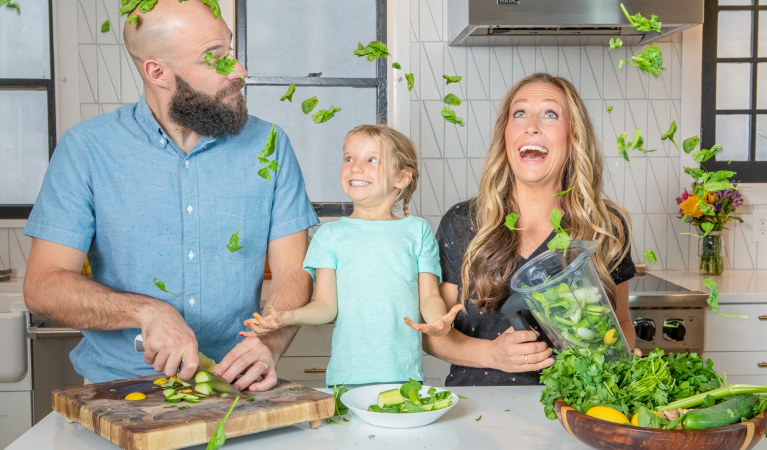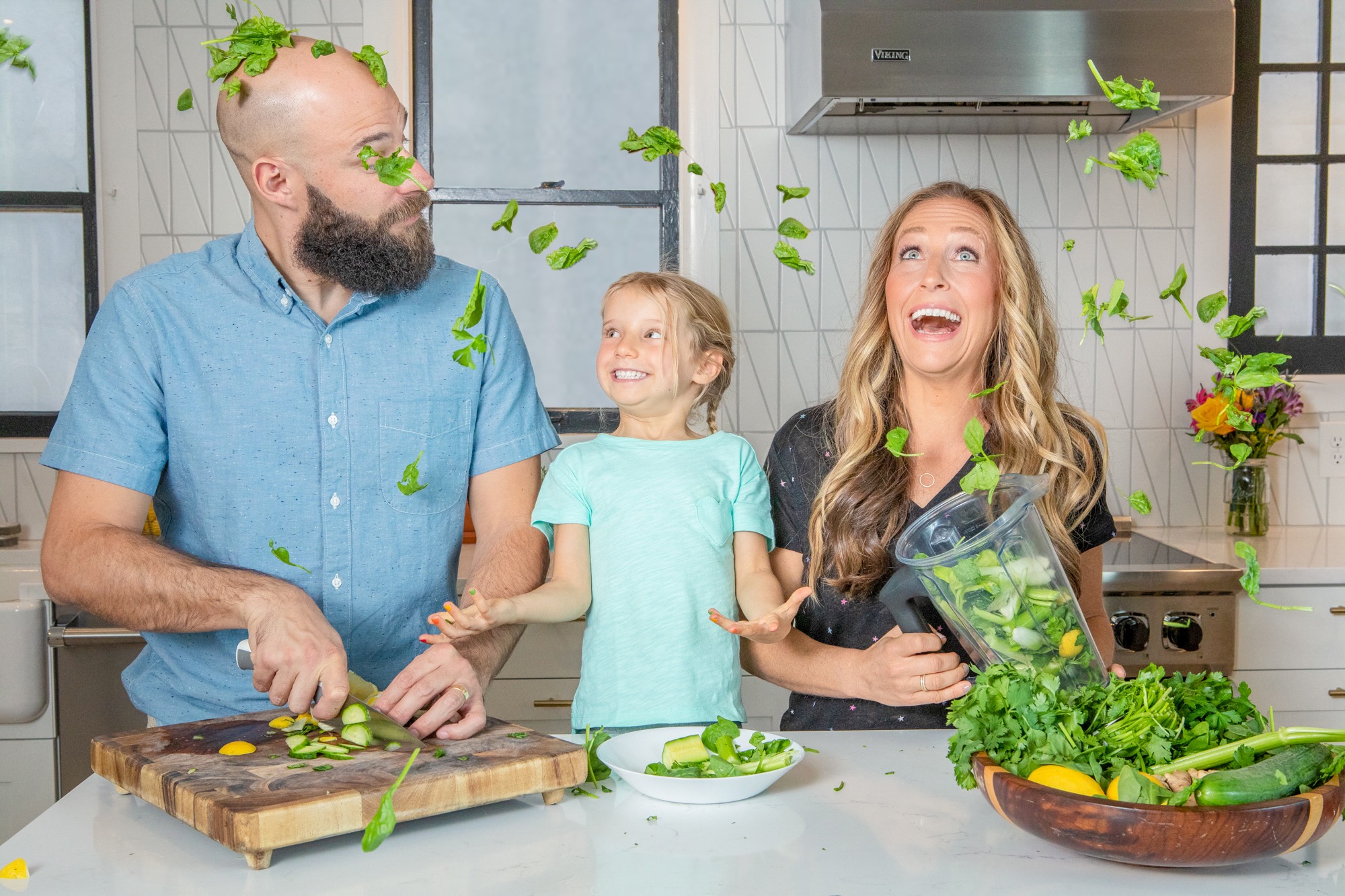We hear it all the time:
“I don’t have time to spend all day in the kitchen making my own food.”
I get it! Not all that long ago (10 years to be exact) “cooking” in my world used to mean swinging by the Whole Foods’ salad bar. Frankly, I didn’t think I had the time to cook for myself. I thought cooking had to take a lot of time and effort.
Time is a funny thing. We all have the same 24 hours in a day and yet the feeling of “not having enough time” is very real for all of us! We spend a great deal of our day at work and sleeping, then if we’re lucky, we get to go to the gym or hang out with friends.
We live incredibly full lives so it’s no surprise that we often end up sacrificing kitchen time. Did you know that Americans now spend more time watching cooking on TV than we spend actually cooking? Crazy! As a nation, our health crisis certainly shows it.

The Conscious Cleanse aims to get you back to basics and reset the frazzled clock to a slower, healthier pace. And of course this includes getting you back into the kitchen.
Cooking real food takes real time but it doesn’t have to become your full-time job!
I’ve rounded up a selection of go-to kitchen habits that, with a little extra effort and some practice, will make you a speedy chef in no time.
We understand that prepping meals at home while cleansing, can be intimidating (especially if it’s your first time!) but these tips will arm you with a few shortcuts to help you navigate the course.
What are some of your favorite ways to make kitchen time more efficient? Please leave us a message in the comment section below.
With home-cooked meal love,
How to Start Cooking Like a Pro
- Plan your menu. The easiest way to feel in control in the kitchen is to know why you’re there. If meal planning is new to you, start with just your dinners for the week. You’ll soon start to recognize which recipes can be doubled for lunch leftovers or frozen for a future dinner. A paper kitchen calendar works great, but there are also apps that can streamline the planning process. A few of our favorites are Plan to Eat and Paprika.
- Balance your grocery list. Split your current food list into sections (meat, veggies, dry goods, etc.). Notice which categories take up the majority of your list. We aim to see an extra long list in the fresh produce section! If another category on your list is winning out, it might be time to go back to your menu plan and get a bit more plant-based.
- Don’t be afraid of the bulk section. Not only does shopping in bulk cut down on packaging and cost, it also allows you to buy just as much (or as little) as you need. Never tried quinoa? Buying a small portion allows for no-risk experimentation. Best bulk buys include non-gluten grains, dried beans, raw nuts, and dried spices.
- Build a salad bar in your fridge. Designate a few large jars or storage containers to hold your “fixins.” Each time you visit the grocery store, buy 2-3 veggies that you can immediately chop up for easy access. Every time the jar empties, fill it with a new chopped, sliced, or shredded vegetable like shredded carrots, beets, sliced fennel and cucumbers. The constant rotation of these veggies will ensure you’re sprinkling a raw rainbow salad over your greens.
- Master the art of batch cooking. Before you start chopping up your salad bar veggies, take a few minutes to cook up a large pot of gluten-free grains or bake 4-6 chicken breasts. While you’re busy chopping, your stovetop and oven are helping to prep quick dinner options for your entire week. Cooked meat will last three to four days in the refrigerator while gluten-free grains can stretch to about a week.
- Fall in love with your freezer. Batch cooking and freezing food are the BFFs of an organized kitchen. If you make extra food or have leftovers that you won’t eat in the next five days, turn toward your freezer. Cooked meat – like ground turkey or baked chicken – can be kept frozen for 2-6 months. Even non-gluten grains and cooked beans can be frozen! For long-term storage (past a week), it’s best to freeze beans in their cooking liquid and then drain them after you reheat them.
- Give simple snacks a makeover. Veggie sticks like carrots and celery might be the world’s oldest “health food snack,” but they’re also the most boring. Give them new life by making an exciting new dip or dressing! The Conscious Cleanse kitchen has been creating some great dips that can be made in large batches specifically for easy snacking. A few favorites include Spinach Artichoke Dip, Cilantro Lime Dipping Sauce, and Sunflower Vinaigrette (p. 84 in the Conscious Cleanse Cookbook).
If you liked this blog, we invite you to join our online community! When you join, you’ll receive regular new recipes and healthy lifestyle tips. As a welcome gift, we’ll send you our FREE Family Clean Eating Guide with 5-Day Meal Planner!
Welcome! We’re so glad you’re here.








Love these idea, especially the app. I have your paper book, but is there an ebook companion so I can bring recipes into the app?
Thanks!
Hi Pamela! Glad you like the app options- we’re actually working on a Conscious Cleanse app for the future, so stay tuned! You can download an ebook at Amazon or Barnes & Noble that will work on an iPad, Nook or Kindle. Thanks for connecting with us!
My favorite thing to do is cook with my family in the kitchen. Our sons are grown and gone, but when they come home, we all work together like a well oiled machine, making good food.
It sounds like you’ve created a healthy food-centered environment in your home. Your boys are lucky to have such a great role model!